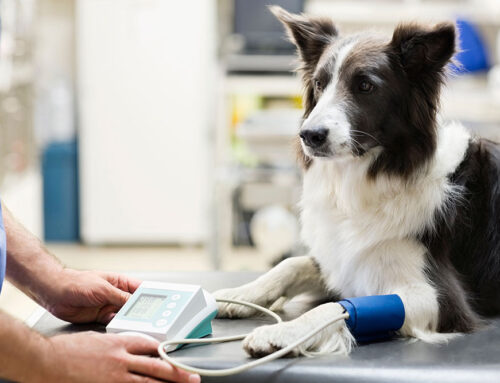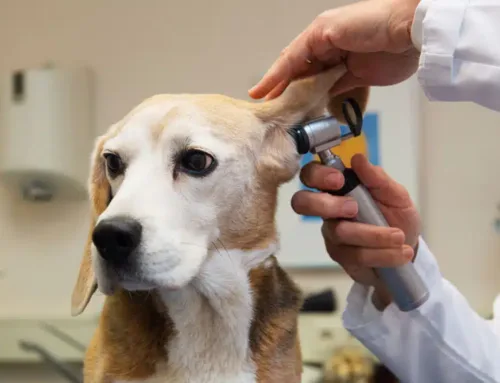If your pet is young and apparently healthy, you may consider their annual wellness screenings a waste of time and money, but these visits are an essential part of your four-legged friend’s healthcare plan. Our Fairfax Veterinary Clinic team has uncompromising standards for your pet’s medical care, and we explain the many benefits of regular wellness screenings for your furry pal.
#1: Regular wellness screenings establish your pet’s normal baseline
All pets are different. You know no other cat or dog can match your pet’s cute face and adorable antics, but each pet’s medical statistics are also unique. While veterinary laboratories set a normal range for diagnostic tests, knowing your pet’s normal baseline provides valuable information that our team uses when assessing your pet’s trends throughout their life. This data is also helpful if your pet is sick, because we can determine exactly how far their values are outside their normal range and whether diagnostic abnormalities are present.
#2: Regular wellness screenings protect your pet from disease
A routine wellness screening provides the perfect opportunity to ensure your pet’s vaccines, which are critical for your pet’s protection from many dangerous diseases, are up-to-date. Our team will assess your pet’s lifestyle and disease risk and develop an appropriate vaccination schedule.
Wellness screenings also are important to detect diseases in their early stages, when they are easier to manage. Pets can mask disease and pain exceptionally well, and often don’t exhibit signs until their condition is advanced and their prognosis endangered. During a routine wellness exam, we perform many diagnostics so we will recognize issues that may indicate a health problem. Diagnostics include:
- Physical examination — A thorough physical examination helps our team detect issues such as periodontal disease, heart murmurs and arrhythmias, dermatologic conditions, cataracts, and retinal issues.
- Blood work — Blood work (i.e., a complete blood count [CBC] and biochemistry profile) can detect issues such as anemia, infection, kidney dysfunction, liver disease, electrolyte abnormalities, and diabetes.
- Urinalysis — Evaluating your pet’s urine helps our team detect conditions such as urinary stones, urinary tract infections, kidney disease, and diabetes.
#3: Regular wellness screenings protect your pet from parasites
Many harmful parasites target pets, and the infections can lead to serious health complications. At your pet’s regular wellness screening, we test for parasites, including:
- Fleas — We use a flea comb to check your pet’s coat for live fleas and flea dirt. Fleas can cause flea allergy dermatitis (FAD) and transmit dangerous diseases and parasites.
- Ticks — During your pet’s physical examination, we look for attached ticks. Ticks can transmit diseases, such as Lyme disease, anaplasmosis, and Rocky Mountain spotted fever, that can cause your pet debilitating illness. We can also perform a quick blood test to determine if your pet has been exposed to some common tick-borne illnesses.
- Heartworms — Our team will use an in-house blood test to check your pet for heartworms, parasites that can significantly damage your four-legged friend’s heart and lungs.
- Gastrointestinal parasites — We will perform a fecal test to determine if your pet is affected by parasites such as hookworms, whipworms, roundworms, giardia, and coccidia.
All pets should be on year-round prevention medication for protection from these parasites. Our team can help you determine the appropriate product or products for your pet.
#4: Regular wellness screenings protect your pet from obesity
Obesity, which affects more than half U.S. cats and dogs, increases your pet’s risk for numerous serious health issues, such as cancer, diabetes, kidney disease, and arthritis. During a wellness screening, our team takes your pet’s accurate weight and assesses their body conditioning score (BCS) to determine their weight status. If they are overweight, we will devise a safe strategy that will help them lose the extra pounds.
#5: Regular wellness screenings help your pet live longer
Unfortunately, pets age faster than people. Small dogs and cats are considered senior citizens at 11 to 12 years of age, medium-sized dogs at around 10 years, large-breed dogs at 8 years, and giant breeds at 7 years. Senior pets are at higher risk for health problems, such as cancer, kidney disease, cataracts, and heart disease, and should be screened more frequently. All pets should be evaluated by a veterinary professional at least annually, and senior pets every six months.
#6: Regular wellness screenings protect your pocket book
Providing wellness care for your pet is much less expensive than a veterinary emergency. Wellness care prevents some disease states and detects others in the earlier stages, when they are easier and less expensive to treat. While wellness screenings may seem inconvenient and expensive, they cost almost nothing compared with a veterinary emergency bill.
#7: Regular wellness screenings allow you to ask questions about your pet

During your pet’s wellness screening, you and your pet have our team’s undivided attention, and you should never hesitate to ask questions or express any concerns about your pet. We are devoted to providing you and your pet with exemplary care, and we want you to feel comfortable discussing any worries with us.
Providing routine wellness screenings is the best way to increase your pet’s longevity and quality of life. Contact our Fairfax Veterinary Clinic team to schedule your furry pal’s wellness exam.








Leave A Comment